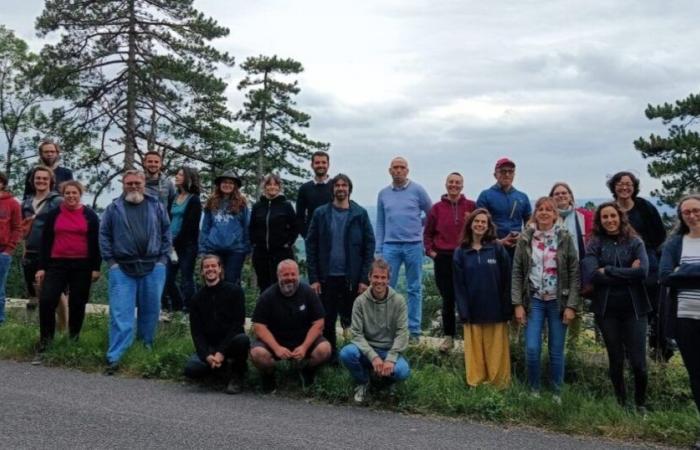“In terms of ecological engineering, France is far ahead of most other countries in the world,” notes Christophe Plotard, communications manager for TerrOïko. Thanks to its expertise in biodiversity management, the company based in Sorèze, in Tarn, contributes at its level to the consolidation of this French leadership and the protection of the biosphere, one of the nine planetary boundaries. “But we are not activists, our basis is scientific,” explains Christophe Plotard.
“TerrOïko is a bridge between scientific research and its concrete applications,” he continues. Founded in 2012 by two doctors in ecology, Sylvain Moulherat and Catherine de Roincé, the Tarn company specializes in “digital technologies and ecological engineering for the management of biodiversity”. Today it has twenty-salaried employees. Its clientele is mainly made up of large groups (SNCF Network, Vinci, Eiffage, etc.), natural parks and public authorities, like Toulouse Métropole, which Terroïko is supporting in particular as part of the Garonne crossing project. northwest of the city.
Biodiversity, a central element of land use planning
“To plan the development of its territory, a community needs to know the areas to be preserved in terms of biodiversity, that is to say where species live and move. This must be stipulated at the PLU stage [1] », explains Christophe Plotard. Environmental authorities can go so far as to block a project that does not take these requirements into account, as has already happened in Nîmes, where TerrOïko subsequently made it possible to find a valid scenario.
Ocapi software makes it possible to estimate species density from photos taken by sensors
TerrOïko
Close to home, the company also came to support the City of Albi, as part of an original project. “In its fight against mosquitoes, the municipality wanted to rely on bats, their natural predators. We used our software to simulate the establishment of these mammals based on their preferences for natural environments, in order to determine where it was most judicious to install roosts,” says Christophe Plotard.
SimOïko, a species life simulator, arrives on the market
“Our three pillars are engineering services, research and software solutions,” he recalls. On the last part, TerrOïko mainly uses SimOïko, a species life simulator. Resulting from the thesis work of Sylvain Moulherat, this modeling software projects the evolution of a species in a territory: giving birth to young ones, which grow, reproduce, move… “This virtual reality, which makes it possible to represent the complexity of living things, helps managers of urban and natural spaces to manage their development projects,” he explains.
From the end of the year, SimOïko will be made available to several researchers, before being marketed to a wider audience. “We have been using the software internally for twelve years. Now, we consider that it is the right time to make it accessible and the market is asking us to do so,” says Christophe Plotard. Thanks to this software solution, the company, which already achieved around 800,000 euros in turnover last year, will benefit from a “second line of revenue” in addition to the sale of engineering services.
Reduce the risk of collision with Ocapi
In addition to SimOïko, another platform called Ocapi is accessible directly from their site. This allows you to estimate the population density of a species from photos. “If you want to reduce the risk of collision on a road or railway, you need to know where there are the most animal crossings,” says Christophe Plotard. Thus, assisted by artificial intelligence, the software will ingest and sort a large volume of photos taken by sensors, then map the results, until extrapolating over a wider territory, allowing TerrOïko to send its client recommendations.
Once the recommendations have been applied, the sensors are left in place “to validate that the distancing measures are indeed effective” and “have not caused traffic to move elsewhere”. In partnership with the Toulouse sensor manufacturer SIconsult, TerrOïko is now working on the development of new generation boxes “with integrated AI”. The technology aims to do an initial sorting inside the object in order to avoid the storage and transfer of heavy and unnecessary data.
Marie-Dominique Lacour
In the photo: The TerrOïko team in June 2024. Credit: TerrOïko.






